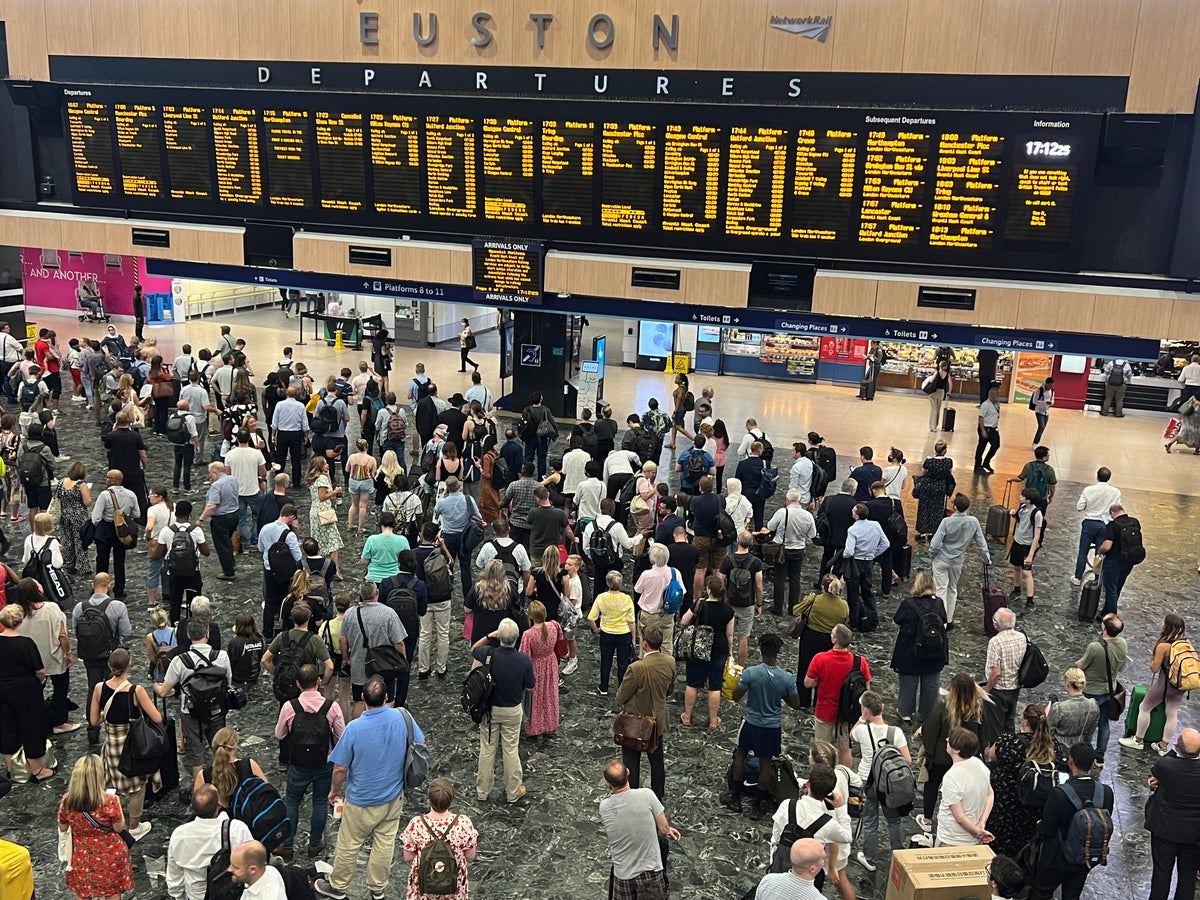
Almost all the railway men and women I meet are decent, hard-working professionals who are devoted to helping the public travel safely and reliably.
Yet intermittently through the month of August they will be devoted to disrupting the journeys of passengers as much as possible. Train drivers belonging to the Aslef union and working for nine train operators will stop work on Saturday 13 August; other railway workers belonging to the RMT union are striking on Thursday 18 and Saturday 20 August, leading to four out of five trains nationwide being cancelled.
Talking privately to some rail staff, it is clear that they feel undervalued. They worked through the coronavirus pandemic and are now seeing their pay eroded by raging inflation. They want a reasonable pay rise, reassurance about job losses and to trade more efficient working for extra percentages on their wages. All fair demands, which they believe can only be achieved by walking out repeatedly until the government caves in.
Yet I wonder if their expectations are misaligned wth reality? “There will be no downside to striking, only a considerable upside.” That is the message from the union leaders. Having successfully sided with David Davis and the rest of the Leave campaign to win the Brexit vote, the leaders of the RMT and Aslef can adapt Mr Davis’s slogan to their current disputes.
The country needs you more than you need the country, the assurance goes. “Stay strong, stay united and we will prevail,” is the inspiring message to striking train drivers from Mick Whelan, general secretary of Aslef. To workers concerned about losing a day’s pay (and possibly the damage they are doing to their industry), there is a soothing narrative.
The government values rail workers so highly that none lost their jobs during the Covid pandemic, even as the aviation industry was shedding jobs in the tens of thousands. Taxpayers stumped up £16bn to keep largely empty trains running for two years.
That figure is dwarfed by the £96bn being invested in High Speed 2 and improvements in the Midlands and the North. And so central is the railway to the future that the government has pledged to reverse the “Beeching cuts” of the 1960s and 1970s, when thousands of unprofitable miles were ripped out of the rail network. Yet more billions pumped in by the Treasury (though all the traveller has to show for it so far is a more regular link between Exeter and Okehampton in Devon).
Plenty more cash where that came from, brothers and sisters, is the seductive message. Yet while – as one executive put it – “rail workers press the self-destruct button”, there is an unholy alliance who cannot believe their fortune: car dealers, oil companies and bus operators.
With every cancelled train, the prospect of convincing a new generation of travellers that owning a car is pointless recedes. Each rail strike emphasises the value of personal, rather than communal, mobility. And the highly professional yet strangely undervalued coach operators, including National Express, Megabus and Flixbus, now represent a more reliable option for passengers who want to plan in advance.
Through August, the financial damage caused by the strikes is being soaked up by the taxpayer. Come September, the arrival of a new prime minister will be accompanied by some savage spending cuts. Surely, though, the railway is immune thanks to its environmental credentials? Sadly, it is fanciful to imagine either contender for the Conservative leadership really gives two hoots for the planet.
Liz Truss demonstrated her scorn for the green agenda with her luxury trip to Australia on a big private jet when perfectly adequate scheduled flights on Qantas were available. And Rishi Sunak showed not a shred of embarrassment in announcing, in the same week as the Cop26 Summit in Glasgow, that he will halve air passenger duty for domestic flights – encouraging a move from rail to air.
A long, hot summer for rail workers; a punishing time for passengers; and a government that is either on holiday or (in the case of the transport secretary, Grant Shapps) too wrapped up in the battle for No 10, which all adds up to extreme volatility when the traveller yearns for tranquility.







